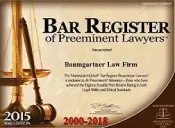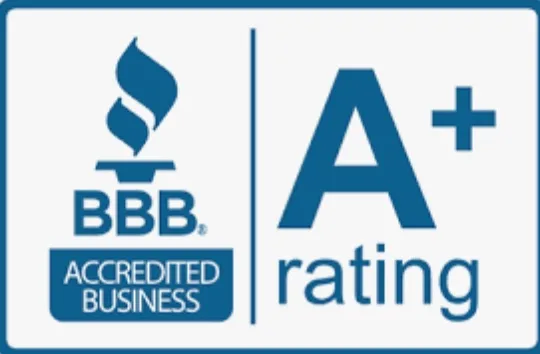Do I Really Need an Attorney for a Personal Injury Claim in Texas?

You Don’t Have to Pay a Lawyer If You Negotiate Your Personal Injury Settlement: Here Is What You Need to Know
If you’ve been injured in an accident, you may wonder if you need an attorney for a personal injury claim in Houston, Texas. Can you negotiate a settlement with the other party’s insurance company without a lawyer? The answer is yes – you can negotiate your personal injury settlement. However, keep a few things in mind before attempting to do so.
The first thing to remember is that insurance companies are not on your side. They aim to pay out as little as possible or, ideally, deny your claim altogether. Therefore, it’s important to clearly understand the value of your claim before beginning negotiations. It’s also important to remember that insurance adjusters are trained to minimize settlements.
Adjusters are not there to help you get the full compensation you deserve. Their job is to save the insurance company money. Therefore, it’s so important to be prepared before beginning negotiations.






When to Consider Representing Yourself
In some cases, it may make sense to represent yourself in negotiations with an insurance company. For example, if your injuries are minor and you don’t expect to miss any time from work, you may be able to negotiate a settlement on your own successfully. You may also be able to successfully negotiate a settlement on your own if you clearly understand the value of your claim and are comfortable negotiating with insurance adjusters.
What to Do First When Negotiating a Settlement for a Personal Injury Claim?
The first thing you should do when you have been injured in an accident is to seek medical attention. It is important to fully understand the extent of your injuries before you attempt to negotiate a settlement with an insurance company.
Once a doctor or other medical professional has treated you, you will have a better idea of the value of your claim. The medical records are provided to the adjuster after you make a claim. The next step is to notify the insurance company of the accident. Ensure that all your medical bills and documentation are ready to be sent to the insurance company.
Read More: Should I Accept a Settlement Offer from the Insurance Company?
Calculating Your Damages
You must calculate your damages once you have been treated for your injuries. Damages refer to the monetary compensation you are entitled to for your injuries. Calculating your damages is one of the most important aspects of handling your personal injury claim without an attorney. Generally, damages fall into two categories: economic and non-economic damages.
Read More: Understanding Commercial Vehicle Accidents
Damages You Can Easily Calculate (Economic Damages)
Economic damages are those that have a specific dollar amount attached to them, such as medical bills, lost wages, out-of-pocket expenses, and property damage. These damages are relatively easy to calculate and document. Proper documentation is key when calculating economic damages. Make sure to save all medical bills, receipts, wage statements, and other documentation to help you calculate the amount of economic damages you are entitled to.
Medical Expenses
Medical expenses refer to all the costs associated with your treatment, including hospitalization, doctor’s visits, physical therapy, prescription drugs, and any other medical supplies you need because of your injuries. Your settlement demand should include all the medical bills associated with your injuries. Be sure to keep all your medical records and bills in a safe place. You will need them when you negotiate your settlement.
Lost Earning Capacity (Lost Wages)
You must include lost wages in your settlement demand if you have missed work because of your injuries. Be sure to keep documentation of all lost wages, such as pay stubs or a letter from your employer.
Human Damages are Estimates
Human damages refer to the pain and suffering you have experienced because of your injuries. These non-economic damages are more challenging to calculate than economic damages, as they do not have a specific dollar amount associated with them. While you may not be able to see the effects of your injuries, they may still be causing you pain and suffering.
Therefore, you will still need to include an estimate of these damages in your settlement demand. The best way to calculate human damages is to consider the’ physical, emotional, and mental effects of your injuries.
How to Value Pain & Suffering
The first step in valuing pain and suffering is understanding the term. Pain and suffering include all the physical and emotional injuries that you experience because of an accident. The pain and suffering valuation is meant to compensate you for these injuries.
There are two primary types of pain and suffering:
1. Physical Pain and Suffering
2. Emotional Pain and Suffering or Mental Anguish
Physical pain and suffering refer to the actual physical injuries that you experience. These can include things like broken bones, lacerations, burns, and more. Emotional pain and suffering, on the other hand, refer to the mental and emotional anguish that you experience because of your injuries. Mental anguish can include things like anxiety, depression, insomnia, and more.
When valuing pain and suffering, it is important to remember that there is no set formula. The insurance company will consider various factors to determine the value of your pain and suffering. These factors can include the severity of your injuries, the duration of your recovery, the impact of your injuries on your daily life, and other relevant considerations.
Estimating Other Damages
Other damages refer to any losses you have experienced because of your accident. These can include things such as loss of enjoyment of life, loss of consortium, and other related damages. Punitive damages may also be available in some cases. Punitive damages are intended to punish the at-fault party and deter similar misconduct in the future. An example of when punitive damages may apply is when a drunk driver injures you.
When estimating other damages, it is important to consider the specific facts of your case. If you are taking on your Houston personal injury case without a lawyer, it is important to understand the compensation to which you are entitled. Knowing how to calculate your damages is a critical part of this process.
Preparing Your Demand Letter
Once you have calculated your damages, you must prepare a demand letter. Your demand letter is a document that outlines your injuries and the compensation you are seeking. It is important to be clear and concise when preparing your demand letter.
You should include all the relevant information, such as the date of the accident, a description of your injuries, and your settlement demand. The demand letter aims to start negotiations and reach a fair settlement.
Fair Compensation Is the Goal
It is important to be polite when preparing your demand letter. You should avoid being confrontational or making unreasonable demands. After all, fair compensation is the goal. Your goal should not be an attempt to profit from your accident. Instead, you should focus on getting fair compensation to cover your losses. Remember, the insurance company is not required to agree to your demand.
Think Like a Stranger
When preparing your demand letter, it is important to think like a stranger. What does it mean to think like a stranger? Thinking like a stranger means that you should not try to emotionalize your injuries or the accident. Instead, you should focus on the facts. The insurance company will review your case objectively. You should do the same.
The more honest and straightforward you are, the more likely you are to get the compensation you deserve. It is also important to be clear and concise when describing your injuries and their effect on your life. Avoid making any assumptions about the insurance company’s knowledge of your case. Assumptions can lead to problems down the road.
How Long Does a Personal Injury Settlement Take?
The time it takes to settle a personal injury case depends on several factors. These can include the severity of your injuries, the insurance company’s willingness to negotiate, and more. Often, a case will last for months or even a year.
Read More: How Long Does a Personal Injury Case Take in Texas?
If Your Demand Is Out of the Ballpark, Negotiations Will Stall
If your demand letter has a very high settlement demand, the insurance company will likely stall negotiations. The insurance company will want to see if you will lower your demand. If you are unwilling to lower your demand, the insurance company may make a lowball offer to settle the case.
If you receive a lowball offer from the insurance company, you are not required to accept it. You should counter the insurance company’s offer with a fair settlement demand.
How to Negotiate with a Counteroffer
A counteroffer is when the insurance company responds to your settlement demand with its offer. The insurance company’s counteroffer will usually be lower than your original demand. When you receive a counteroffer, carefully review it and decide whether to accept or reject the revised offer.
You should consider whether the offer is fair and reasonable. If it is not, you should make a counteroffer. Your new settlement demand can be lower than your original demand but higher than the insurance company’s counteroffer.
Read More: How to Deal with a Low Settlement Offer
Tips for Getting the Best Personal Injury Settlement
You can do a few things to increase your chances of getting the best personal injury settlement.
Research the Value of Your Claim
Prepare to Negotiate
Getting multiple settlement offers from the insurance company is also a good idea. Negotiation will give you a better idea of a fair settlement offer. You can clarify to the insurance company that you are unwilling to accept low-ball settlement offers.
Read More: Secrets of Negotiation for Personal Injury Victims
Be Patient
It is important to be patient when negotiating your personal injury settlement. The insurance company will likely want to take its time reviewing your claim and making a fair offer. Do not be afraid to give the insurance company a reasonable amount of time to respond to your settlement demand.
When To Hire an Attorney
There are a few instances where you should consider hiring an attorney to help you with your personal injury claim.
Your Case Is Complex
You may consider hiring an attorney if your personal injury case is complex. An attorney can help you navigate the legal process and ensure that all the necessary evidence is gathered.
Responsibility Is Disputed
If liability for the accident is disputed, you may consider hiring an attorney. The insurance company often tries to contend that you are partly at fault. An attorney can help you prove that the other party was at fault for the accident.
Your Damages Are Substantial
You may want to consider hiring an attorney if your damages are substantial. An attorney can help you prove the full extent of your damages and ensure you are fairly compensated.
You Have a Hospital or Other Liens or Subrogation
You may want to consider hiring an attorney if you have hospital or other liens or subrogation claims against you. An attorney can help you negotiate with the lienholders and ensure you are fairly compensated.
The Insurance Company Refuses to Pay Reasonable Damages
You may want to consider hiring an attorney if the insurance company refuses to pay a reasonable amount of damages. An attorney can help you negotiate with the insurance company and ensure you receive the compensation you deserve.
A Lawsuit Is Necessary
Most personal injury cases are resolved without the need for a trial. However, if the other side refuses to offer a reasonable settlement, you may have to take your case to court. You must speak with an attorney to ensure that going to trial is in your best interest. If your case does go to trial, your attorney will be by your side every step of the way.
If you have been injured in an accident, the Baumgartner Law Firm can help. We are personal injury lawyers representing individuals who have been injured in various claims, including car accidents, truck accidents, motorcycle accidents, and other types of accidents. We understand the process of filing a personal injury claim and can help you every step of the way. Contact us today to schedule a complimentary consultation.
For a FREE Consultation Contact Us Today
"*" indicates required fields
Related Links
Our Experienced Houston Personal Injury Lawyer Can Help!
Case Results
$5,750,000.00 Truck Accident - Wrongful Death
$6,000,000.00 Daycare Injury
Confidential Settlement Commercial Vehicle Crash - Wrongful Death
Confidential Settlement Burn Injury
Confidential Settlement 18-Wheeler Accident - Wrongful Death
Legal Services
Contact for a Personal Injury Claim in Texas
at Baumgartner Law Firm for Help!
Contactfor a Personal Injury Claim in Texas personal injury claim.
OR
Fill out an online consultation request for a FREE consultation.
Baumgartner Law Firm Practice Pages:
Related Resources:
About Our Law Firm in Houston
Houston personal injury lawyer Greg Baumgartner heads the Baumgartner Law Firm.
Our firm was established in 1985 and has helped thousands of injury victims get maximum compensation for their cases. If you have been injured in an accident in Houston, TX, contact us for a free, no-obligation consultation. (281) 587-1111.
Since 1985, Baumgartner Law Firm has limited our law practice to serious personal injury cases. Our legal team has won maximum compensation for thousands of accident victims and recovered millions of dollars for real people like you.
Helping these areas around Houston
"*" indicates required fields

